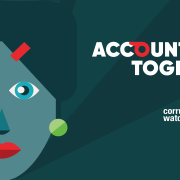|
Getting your Trinity Audio player ready...
|
Land governance in Africa is increasingly seen as a major challenge, because of the continent’s vast size, its swathes of rich arable land, its fast-growing population, and its food security challenges, among other factors.
The UN’s Food and Agriculture Organisation defines land governance as “an existing system of rules, processes and structures by which decisions regarding natural resources (i.e. land) are made, access to natural resources is regulated and conflicting interests are managed.” With such a far-reaching impact, therefore, it is crucial that land governance on the continent works in favour of the 1.5-billion people who live there – but all too often, it does not.
“The weakness of governance institutions,” writes Transparency International (TI) land governance specialist Jonathan Ochom in a recently published policy paper, “is at the core of land governance challenges in Africa, alongside land grabbing and a disregard for human rights, among other issues.”
These challenges, he adds, citing political scientist Prof Olugbemiga Afolabi’s paper Land Governance in Africa, are further reinforced by high levels of corruption and non-adherence to issues of fundamental human rights, particularly of local farmers.
Ochom’s paper, titled Addressing Land Corruption in Africa: Recommendations based on the African Union’s Land Governance Strategy, examines the land governance situation across the continent, focusing on efforts by the African Union (AU) – including the most recent, its 2023 Land Governance Strategy – to address land corruption.
Land corruption in Africa and its impact
Corruption Watch (CW) has worked with TI for several years on phases one and two of the latter organisation’s Land and Corruption in Africa project, which seeks to address land corruption risks and injustices in sub-Saharan Africa. CW released two reports on this work in 2019 and 2023, the latter of which formed part of TI’s broader report on the pan-African project, titled This Beautiful Land: Corruption, discrimination and land rights in Sub-Saharan Africa.
This Beautiful Land exposed the discriminatory effects of land corruption in Africa. “Based on case studies from seven African countries, the report showed that land corruption heightens discrimination and marginalisation, has disproportionate effects on women and marginalised groups, results in injustice, and impedes the efficacy of equality measures.”
It is therefore no coincidence that sub-Saharan Africa made a poor showing on TI’s 2023 Corruption Perceptions Index, managing just 33 out of a potential 100. This was again the lowest performing region on the CPI, with 90% of countries scoring under 50. South Africa (41), Gabon (28), and Liberia (25) achieved new low scores in 2023, in South Africa’s case a 12-year all-time low.
The region’s persistent challenges in this regard stem from decades of severe underfunding in public sectors, exacerbated by corruption and illicit financial flows (IFFs) siphoning resources away from basic public services. These trends only serve to deepen inequality and social injustice, affecting the most vulnerable, who are denied access to justice.
One notable form of land corruption involves real estate, a vehicle through which dirty money is moved around the world, including into and out of Africa. The 2022 Global Real Estate Transparency Index assessed 15 countries in sub-Saharan Africa, writes Ochom, of which Angola, Ethiopia, Ivory Coast, Mozambique, Senegal, Tanzania, and Uganda were ranked “Opaque”, while Ghana, Nigeria, Rwanda, and Zambia were ranked “Low” in transparency and Kenya, Mauritius, and Botswana were “Semi-transparent”.
Only South Africa was ranked “Transparent”. However, Open Secrets disagrees with this assessment. The Cape Town-based civil society organisation released a report earlier in November titled For Sale: South Africa’s Property Laundromat. The report uncovers how luxury real estate in South Africa has become a haven for laundering funds linked to land corruption across Africa, perpetrated with impunity by the political elite in countries such as Mozambique, the Democratic Republic of Congo (DRC), and Equatorial Guinea.
Furthermore, some of South Africa’s well-known real estate companies were shown to be complicit in enabling these foreign politicians to use cash to buy property locally, the Open Secrets report shows.
One thing is certain, and that is that no African country made it to the “Highly Transparent” category on the Real Estate Transparency Index, writes Ochom. “This further demonstrates how transparency, accountability, and integrity continue to elude Africa’s land governance systems.”
The 2024 edition of the index has since been released, but is not mentioned in Ochom’s paper.
IFFs are another tremendous threat to land governance across Africa. Such corruption disrupts environmental sustainability, driving deforestation, habitat loss, and degradation of critical natural resources. Meanwhile, vulnerable communities are disproportionately affected.
“Corruption in land governance often results in illegal land acquisitions, exploitation, and the loss of biodiversity, which in turn jeopardises global conservation goals,” said the Land Corruption Working Group, an arm of the Countering Environmental Corruption Practitioners Forum, in a recent webinar.
The billions that are lost annually to IFFs, said independent consultant Robert Mwanyumba during that session, “could have gone into conservation efforts, could have gone into strengthening governance systems, could have gone into forestalling conflicts that have become practiced because of the effects of illicit financial flows.”
Countering land corruption
The AU’s revised land governance strategy was launched in November 2023 during the Third Conference on Land Policy in Africa, which took place at the AU Headquarters in Addis Ababa, Ethiopia. Its goal is to “ensure that land is equitably governed, with secured land rights and tenure for all to have sustainable livelihoods, human settlements, ecosystems and socioeconomic development in Africa”.
The strategy consists of 11 guiding principles, five strategic objectives, 14 strategic outcomes and 67 strategic actions, says Ochom. “It also contains an elaborate stakeholder analysis, a communications plan, and an implementation plan.”
The AU recognises the challenges posed by corruption in land administration and service delivery, and in its land governance strategy has provided numerous measures for countering the scourge. Some of the objectives include urging AU member states to implement transparent compulsory land acquisition processes, and to “enforce measures against corruption in the land sector” to “advance good service delivery”. It also calls on member states to establish accountable governance structures for customary land.
Other areas, such as the role of civil society and the use of technology, are also covered.
Recommendations
TI, however, has identified several flaws or weak points in the strategy, and has accordingly made numerous suggestions for improvement. These weak areas include:
- No clear-cut measures to take against corruption;
- No mention of responsible, ethical management of government or public land;
- The focus on gender and land corruption is not narrow enough; and
- No monitoring and evaluation plan.
TI’s recommendations encompass the work of the AU Commission, the African Land Policy Centre, the AU Advisory Board against Corruption, and regional CSOs. All of these entities have a role to play in addressing land corruption in Africa.
Read the paper below, or download it.








